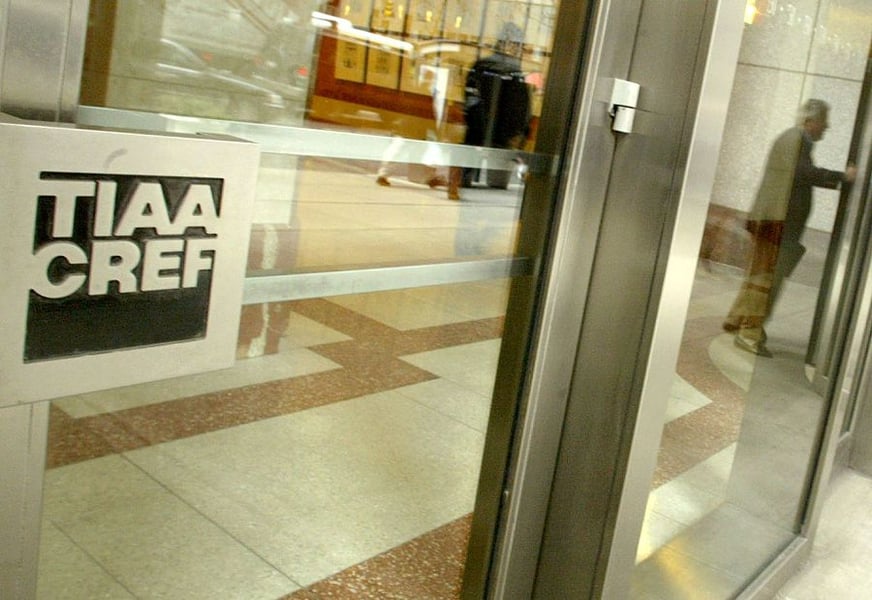

TIAA misled retirement plan customers for five years about its conflicts of interest related to IRA rollover recommendations, according to a settlement notice published Tuesday by regulators.
The company has agreed to pay $97 million to settle charges that it provided inaccurate statements to clients and did not disclose conflicts of interest to thousands of plan participants, the Securities and Exchange Commission stated.
The settlement covers two actions — one by the SEC and another from the New York state attorney general. The investigations found that from Jan. 1, 2013, to March 30, 2018, the company and its wealth management advisers characterized themselves as fiduciaries while recommending rollovers to TIAA’s Portfolio Advisor managed accounts. Despite being trained to tell clients that the advice was objective and not commission-based, sales reps had compensation incentives and faced disciplinary pressure to make recommendations, according to the announcements.
“[T]ens of thousands of customers were pressured by TIAA advisers to move their investments from low-cost, employer-sponsored retirement plans to higher-cost, individually managed accounts,” the New York attorney general’s office stated. “The program was significantly more expensive for clients and generated hundreds of millions of dollars in fees for TIAA.”
According to the SEC’s order, there were more than 18,000 rollovers to the Portfolio Advisor program over the five years it examined, during which time revenues from those assets went from $2.6 million to $54 million. TIAA-CREF’s dually registered Individual and Institutional Services, which services retirement plans and participants, had about $36.4 billion in assets under management as of March 30.
Advisers “were heavily incentivized … to identify clients’ ‘pain points.’ These pain points helped the company pressure clients into making different investments by essentially selling fear,” the attorney general’s office wrote. “Similarly, TIAA advisors represented to clients that TIAA was operating under a fiduciary standard, but in reality the company treated rollover recommendations as subject only to a less rigorous ‘suitability’ standard.”
The Portfolio Advisor program charged asset-based fees ranging from 40 basis points to 115 bps during the timeframe the regulators examined, “whereas clients paid no wrap fees for assets in their [employer-sponsored plans] or self-directed accounts,” the SEC order noted.
After a review of its procedures, the company began to fix some of its practices in 2017, partially in response to the Department of Labor’s fiduciary rule, according to the SEC order. That year the company also came under public scrutiny for its recommendations of in-house products and services.
The following year, TIAA's analysis of its Portfolio Advisor program showed that performance in those accounts lagged the performance in employer-sponsored retirement plans with free third-party advice, the New York attorney general's office wrote. A following evaluation that was conducted at the request of the attorney general similarly found that accounts in employer-sponsored plans had better risk-adjusted returns.
In an emailed statement from a company spokesperson, TIAA noted that it cooperated with the regulators.
“We regret the times that we did not live up to our clients’ expectations of us,” the statement read. “We have learned some valuable lessons and have applied those lessons to enhancing our training, supervisory controls and disclosures. We started implementing some of these enhancements even before regulators opened their investigations, and we continuously look for ways to better serve our clients’ interests.”
In addition to the monetary component of the settlement, TIAA agreed to “significant internal reforms,” the regulators noted. Those include a strict fiduciary standard for rollover recommendations, stopping compensation tied to managed accounts sales, disclosing conflicts of interest, using plain language to communicate times when advisers are not acting as fiduciaries and training its advisers to show participants “a fair comparison between managed accounts and employer-sponsored plans.”

Canadian stocks are on a roll in 2025 as the country prepares to name a new Prime Minister.

Two C-level leaders reveal the new time-saving tools they've implemented and what advisors are doing with their newly freed-up hours.

The RIA led by Merrill Lynch veteran John Thiel is helping its advisors take part in the growing trend toward fee-based annuities.

Driven by robust transaction activity amid market turbulence and increased focus on billion-dollar plus targets, Echelon Partners expects another all-time high in 2025.

The looming threat of federal funding cuts to state and local governments has lawmakers weighing a levy that was phased out in 1981.
RIAs face rising regulatory pressure in 2025. Forward-looking firms are responding with embedded technology, not more paperwork.
As inheritances are set to reshape client portfolios and next-gen heirs demand digital-first experiences, firms are retooling their wealth tech stacks and succession models in real time.
